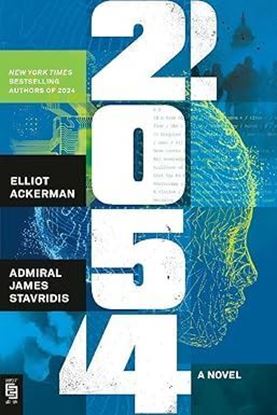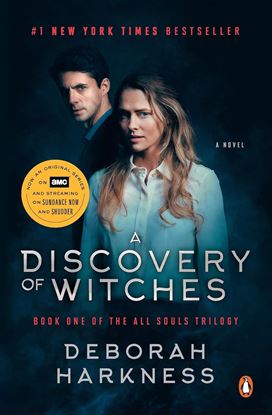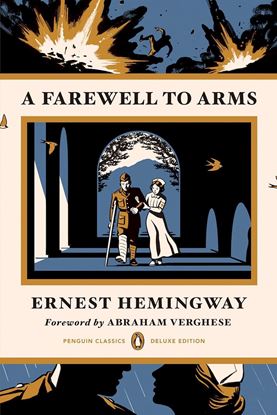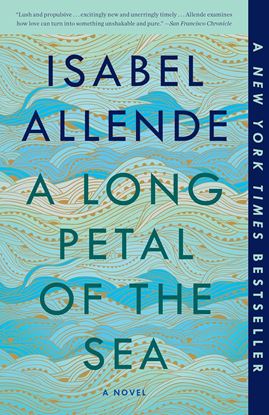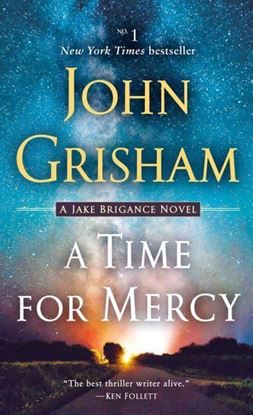

2054
It is twenty years after the catastrophic war between the United States and China that brought down the old American political order. A new party has emerged in the US, one that’s held power for over a decade. Efforts to cement its grip have resulted in mounting violent resistance. The American president has control of the media, but he is beginning to lose control of the streets. Many fear he’ll stop at nothing to remain in the White House. Suddenly, he collapses in the middle of an address to the nation. After an initial flurry of misinformation, the administration reluctantly announces his death. A cover-up ensues, conspiracy theories abound, and the country descends into a new type of civil war.
1,300
A DEATH IN CORNWALL
A brutal murder, a missing masterpiece, a mystery only Gabriel Allon can solve . . .
Art restorer and legendary spy Gabriel Allon has slipped quietly into London to attend a reception at the Courtauld Gallery celebrating the return of a stolen self-portrait by Vincent van Gogh. But when an old friend from the Devon and Cornwall Police seeks his help with a baffling murder investigation, he finds himself pursuing a powerful and dangerous new adversary.
The victim is Charlotte Blake, a celebrated professor of art history from Oxford who spends her weekends in the same seaside village where Gabriel once lived under an assumed identity. Her murder appears to be the work of a diabolical serial killer who has been terrorizing the Cornish countryside. But there are a number of telltale inconsistencies, including a missing mobile phone. And then there is the mysterious three-letter cypher she left behind on a notepad in her study.
1,300
A DISCOVERY OF WITCHES (MOVIE-TI) (PB)
Deborah Harkness’s sparkling debut, A Discovery of Witches, has brought her into the spotlight and galvanized fans around the world. In this tale of passion and obsession, Diana Bishop, a young scholar and a descendant of witches, discovers a long-lost and enchanted alchemical manuscript, Ashmole 782, deep in Oxford's Bodleian Library. Its reappearance summons a fantastical underworld, which she navigates with her leading man, vampire geneticist Matthew Clairmont.
Harkness has created a universe to rival those of Anne Rice, Diana Gabaldon, and Elizabeth Kostova, and she adds a scholar's depth to this riveting tale of magic and suspense.
900
A FAREWELL TO ARMS
A Farewell to Arms is one of Ernest Hemingway’s most popular books, a masterpiece that is not only among the greatest novels to come out of World War I but also one of the most profoundly moving in the American canon. Based on Hemingway’s own experience volunteering with the Red Cross in Italy during World War I, and written when he was only thirty, it tells the story of Frederic Henry, an American ambulance driver, and Catherine Barkley, an English nurse. For Frederic, Catherine’s kindness and beauty shore him up against the carnage of battle; for Catherine, Frederic’s strength and devotion are a lifeboat in the sea of grief over her first love. Through injury, surgery, and the psychic fallout of war, they maintain an overwhelming desire to be together, even as forces conspire to keep them apart. Hemingway captures the intensity of both love and war with the taut immediacy and spare, understated eloquence that are his hallmarks, reminding us why this novel—his first bestseller—endures as a favorite, and why the Nobel laureate ranks among our most treasured writers.
1,300
A LONG PETAL OF THE SEA (PB)
In the late 1930s, civil war grips Spain. When General Franco and his Fascists succeed in overthrowing the government, hundreds of thousands are forced to flee in a treacherous journey over the mountains to the French border. Among them is Roser, a pregnant young widow, who finds her life intertwined with that of Victor Dalmau, an army doctor and the brother of her deceased love. In order to survive, the two must unite in a marriage neither of them desires.
Together with two thousand other refugees, Roser and Victor embark on the SS Winnipeg, a ship chartered by the poet Pablo Neruda, to Chile: “the long petal of sea and wine and snow.” As unlikely partners, the couple embraces exile as the rest of Europe erupts in world war. Starting over on a new continent, they face trial after trial, but they will also find joy as they patiently await the day when they might go home. Through it all, their hope of returning to Spain keeps them going.
1,200
A TIME FOR MERCY (MM)
Clanton, Mississippi. 1990. Jake Brigance finds himself embroiled in a deeply divisive trial when the court appoints him attorney for Drew Gamble, a timid sixteen-year-old boy accused of murdering a local deputy. Many in Clanton want a swift trial and the death penalty, but Brigance digs in and discovers that there is more to the story than meets the eye. Jake's fierce commitment to saving Drew from the gas chamber puts his career, his financial security, and the safety of his family on the line.
650

